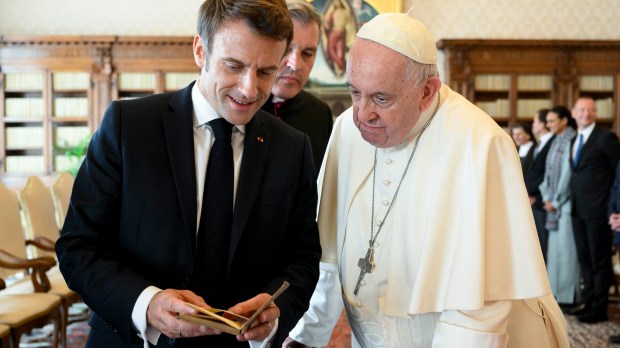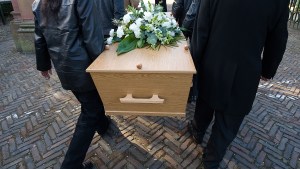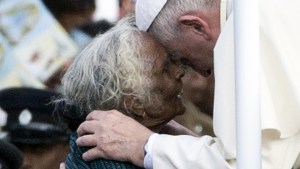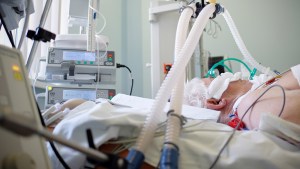A few hours after his third meeting with Pope Francis, French President Emmanuel Macron confided on the plane back to Paris that he did discuss euthanasia with the Pontiff. To a handful of journalists, Macron, who is planning a national consultation on the subject, said, “The Pope knows I won’t do just anything.”
The president said he discussed the issue “at the initiative of the Pope.”
Pope Francis has had the coming French political debate on euthanasia at the forefront of his mind. Three days ago, in a meeting with elected officials of northern France, he insisted that “we cannot ask caregivers to kill their patients.”
For his part, Macron said he does not like “the word euthanasia,” preferring the term “end of life” because he considers that “death is a moment of life, not a technical act.”
Not just words
The word “euthanasia” is rooted in theGreek words “eu” (good) and “thanatos” (death). It refers to the intentional taking of life.
A 2020 document from the Vatican clarifies what euthanasia is, and why it’s wrong:
The Church is convinced of the necessity to reaffirm as definitive teaching that euthanasia is a crime against human life because, in this act, one chooses directly to cause the death of another innocent human being. The correct definition of euthanasia depends, not on a consideration of the goods or values at stake, but on the moral object properly specified by the choice of “an action or an omission which of itself or by intention causes death, in order that all pain may in this way be eliminated”.[36] “Euthanasia’s terms of reference, therefore, are to be found in the intention of the will and in the methods used”.[37] The moral evaluation of euthanasia, and its consequences does not depend on a balance of principles that the situation and the pain of the patient could, according to some, justify the termination of the sick person. Values of life, autonomy, and decision-making ability are not on the same level as the quality of life as such.
Euthanasia is spoken of as active – whereby a substance is administered to cause death – or passive – whereby necessary care such as food and water is withheld so that the patient dies of dehydration.
There is also assisted suicide, whereby a patient is given the substance to end his or her life, but performs the act of administering it him/herself.
Macron’s wonderings
The president insisted on the legitimacy of the debate that the government of Elisabeth Borne has launched, considering that the situation of “despair and decay” in which some patients find themselves – he cited “Charcot’s disease” – is “a real question” and that he did not intend to “pre-empt the debate.”
“Does my death belong to me? It is an intimidating question, I am not sure of having the answer,” he reflected.
However, the Holy Father has often insisted that when the elderly or sick are truly cared for, the desire to hasten death evaporates.
He has said:
We must accompany people towards death, but not provoke death or facilitate any form of suicide. I would point out that the right to care and treatment for all must always be prioritised, so that the weakest, particularly the elderly and the sick, are never discarded. Life is a right, not death, which must be welcomed, not administered. And this ethical principle applies to everyone, not just Christians or believers.
The Holy Father has said that “accelerating the death of the elderly” is a “real social problem,” especially in regard to the elderly poor. He lamented when they are given fewer medicines than they need because they are poor. “This is neither human nor Christian.”
Europe’s battle
Five European countries have legalized euthanasia: Belgium, the Netherlands, Luxembourg, Germany and Spain.
Switzerland approves assisted suicide and other European countries allow passive euthanasia.
Portugal has moved to legalize euthanasia, but has twice been saved by a presidential veto.






